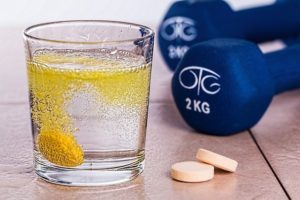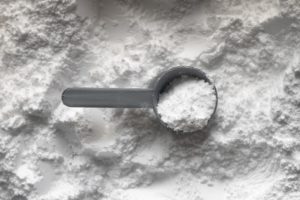Fasting has gained a lot of traction lately as people in the health and wellness communities learn more about its many health benefits. The nice thing about fasting is that it takes so many different forms. There isn’t a one-size-fits-all approach to fasting, which makes it an easy thing to customize.
Some people fast for religious reasons, while others fast for their general health. Some people also use fasting as a way to “train” their bodies for different conditions they may find themselves in (such as government operatives who may need to go into hiding for days with limited or no access to food). An additional reason for fasting is to lose stubborn weight or kick the body quickly into ketosis (a metabolic state in which the body switches from using primarily carbs for energy to using primarily fat for energy).
But no matter why you decide to fast, you’ll probably discover that it’s more challenging for you at certain times than others. Fortunately, there are tools you can use (such as appetite suppressant mints) to make fasting easier. It’s also important to make sure you’re getting enough electrolytes for your body’s daily needs. Here’s why.
Why Are Electrolytes Important?
Some people underestimate the importance of consuming electrolytes when fasting, but this can be detrimental to their health. The human body relies on electrolytes all the time to perform critical processes and functions within the body. But when you’re fasting, you’re not getting electrolytes from the foods you’d normally consume. Since electrolyte imbalances can lead to muscle spasms, restlessness, headaches, and life-threatening symptoms, it’s essential to make sure you’re getting enough while you’re fasting.
It doesn’t matter whether you’re doing one meal a day vs alternate day fasting. You still need to keep a close eye on your electrolyte intake. Here are the top electrolytes you’ll need to take while in a fasted state:
- Potassium
- Sodium
- Magnesium
These are the electrolytes that are most likely to dip below safe levels if you frequently fast. Potassium is the electrolyte that helps maintain your heart rate and ensure your blood pressure stays within a healthy level. It also keeps the pH of your body balanced and aids in digestion.
Sodium is an essential electrolyte that contributes to a variety of bodily functions (including muscle contraction, nerve impulses and hydration). Most people consume too much sodium rather than too little, but people who frequently fast are an exception. Prolonged fasting can lead to a sodium deficiency that can be dangerous if it isn’t addressed quickly.
Magnesium is required by every cell in your body. It creates energy from the food you eat, repairs your DNA, forms proteins, and maintains your nervous system.
How To Ensure You Receive Enough Electrolytes During a Fast
If you’re experiencing symptoms of imbalanced electrolytes when fasting (such as a persistent headache, dizziness, mood swings, and heavy thirst), here are a few ways to replenish your electrolytes quickly:
- Swallow a pinch of salt
- Drink water that’s infused with electrolytes
- Drink bone broth
- Take supplemental electrolytes in powder form
- Eat more leafy green vegetables
Doing these things will help you keep your electrolyte levels balanced while fasting. You’ll also feel better throughout your fast and will have an easier time going longer without food!





